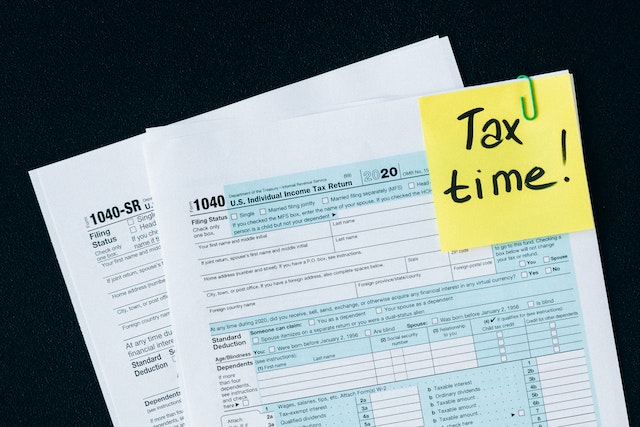
Humans, whether professionals, trained, experienced, or qualified, err countless times. It is, therefore, not a surprise that you may encounter accounting mistakes in your startup. You may incur losses, double taxation, and time wastage among other hassles in the end. The good news, however, is that there are ways of avoiding such occurrences. Please read on to find out the 5 most common accounting mistakes and the tips on how you can avoid them.
5 Common Accounting Mistakes
Update Your Bookkeeping
A major mistake a startup might face in its accounting system is improper or a lack of bookkeeping. You may have transactions in your business but fail to enter them in your accounting books. How do you avoid this problem?
One of the best ways is to ensure your accounting books are always up to date. Thankfully, it is a straightforward tip; record each accounting transaction between your business and other parties involved, no matter how small it may seem. This will prevent a lot of procrastination that may cost your business.
Updating your accounting books helps you keep track of the cash received and the payments made. Notably, depending on the bookkeeping method you employ in your accounting, ensure everything is noted down, whether the transactions are complete or not. Why is this important? It helps avoid any omission errors that may result from a lack of proper bookkeeping.

Remember, any slight mistake in your bookkeeping may translate into wrong tax filing, and incorrect financial statements and eventually cost your startup more money. Therefore, ensure you record and update every single transaction.
Read: 7 Best Ways to Protect Your Customer’s Personal Data
Embrace Proper Documentation
Improper documentation is another major accounting mistake startups face. The temptation to quickly get rid of bank receipts among other documents is real especially when decluttering. This is a huge mistake. Destroying such documentation means throwing away some evidence that may come in handy when a situation arises. Thus, you may suffer from tax deductions as a result of lost supportive documents. So, how do you approach such a challenge?
Rather than getting rid of the bank receipts and statements of your startup, why not have a way of saving them? They may save your business in case of auditing. Nonetheless, such documents help in your bookkeeping, which as already mentioned, should always be updated.
As a tip, you can save the receipts, bank statements, and other documents dating back to at least the past three years. For more security, you can have a lockable filing cabinet where you store them. Alternatively, you can go digital by having a cloud-based storage system on your computer as an extra backup.
Hiring a Third-Party Accounting Personnel
As a startup, you may make the mistake of not seeking help when you need it. As a startup owner, you may want to be in charge of every department and everything in the business. Unfortunately, this may not yield great results. Remember, your business is growing and you will need more hands to get the accounting tasks done.
Therefore, we recommend you hire third-party accounting personnel for assistance. The good news is, technology has simplified things and brought efficiency and convenience. Rather than source a third-party accountant physically and locally, you can take advantage of online platforms. For example, if you are in the Netherlands, local accountant can come in handy. Here, there is a professional and affordable team to assist you in your accounting, bookkeeping, tax and VAT compliance, and consultancy among other services related to accountancy.
Read: What is Privacy Compliance? The Ultimate Guide
Have Proper Data Entry Strategy
Data entry errors are other common accounting mistakes in a startup. This can be linked to human error. Unfortunately, it can result in your business losing a lot of money. As much as you may not prevent 100% data entry errors, you can have strategies in position to help reduce their occurrence.
For instance, you can ensure you properly train your team so that each individual is aware of what is expected of them. For a small business, you may need fewer personnel compared to a larger startup. Regardless of the number of employees, ensure they are well-trained and efficient in their roles.

Nonetheless, each one in your team handling data entry should have a specific limit, whether a daily or a weekly target. With a realistic and achievable goal in mind, no one will be overloaded with work, and the chances of errors when entering data will be greatly reduced. Furthermore, you will mostly beat deadlines and due dates as required.
Once you train and have a limit for each member, ensure you have a strategy for reviewing the work done in your accounting system. When the team knows that the data entries will be reviewed eventually, the members will be prompted to double-check their work. This will in turn increase the accuracy and keenness in data entry, and thus fewer errors. Also, reviewing the business accounts prevents fraudulent activities.
Read: Wearables: Tap to Pay Era is Finally Here
Employ an Accounting Software
At times, you may be having accounting mistakes in your startup as a result of not using advanced financial technologies. What problem can this bring? Your business may not take full advantage of the power and potential of the ever-growing and evolving digital world. How sad it is not to make use of advanced accounting features provided by technology
Therefore, as a tip to keep your business safe, ensure you install and update the latest accounting software. This way, you can easily perform complex operations and easily and faster handle more detailed financial reports among others. Besides, some of the software is specialized in certain tasks such as bookkeeping and tax management.
Notably, when choosing effective accounting software for your startup, you can consider its ease of use, whether it has video demonstrations, allows you to integrate other apps, or has any other beneficial tools you can utilize.
Get The Right Partners to Help Deal with Accounting Mistakes
Accounting mistakes are not new to startups. These errors range from simple to complex. Either way, they may greatly cost your business; double taxation to loss of important documents and financial details. Thankfully, with the right steps, you can prevent occurrences of accounting mistakes. Some of the tips include having proper documentation, updated bookkeeping, accounting software, the right data entry strategy, and getting third-party accounting personnel from platforms such as local accountant. With the right partners and tools by your side, you can reduce common startup accounting mistakes.
Related Articles that you Might be Interested in:
3 Reasons Why you Need a Third-Party Accountant for your Start-Up
3 Ways you Can Remain VAT Compliant Always
Best Places to Get a Free Company Around the World




